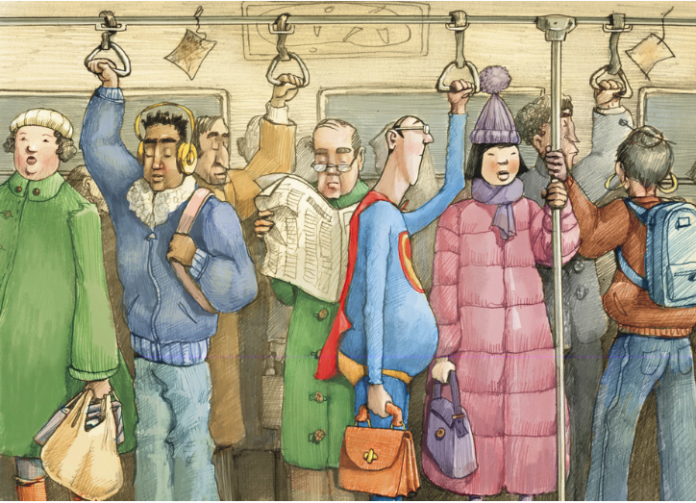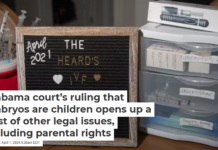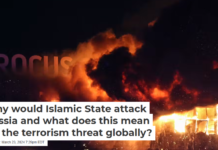
Bruce Peabody, Fairleigh Dickinson University
Who counts as a hero in the 21st century? ![]()
How is heroism adapting to an age of nonstop news, hyper-partisanship and intense political scrutiny?
Research I recently conducted with my colleague Krista Jenkins focuses on the evolving profile and significance of U.S. heroism over the past century.
After examining decades of survey data, presidential political rhetoric from William McKinley – elected in 1896 – to Barack Obama, thousands of news stories and four generational focus groups, we can confidently say that ordinary people and political and media leaders talk about heroes in different ways. These often striking differences highlight important political challenges we face today.
Abundant talk
Talk about heroes has certainly been abundant in the early days of the Trump administration. In just over three months in office, the president has made more than 20 different hero references in speeches and tweets.
These include identifying a number of his Cabinet appointees as heroes, saluting those who “risked their lives” during the Holocaust and honoring “those unsung women heroes of our daily lives.”
The media have followed a similar pattern. Since Inauguration Day, major news outlets have referenced heroism in numerous stories, covering everything from a four-year-old cancer patient, to an emergency medical technician killed by a mentally ill man, to community programs celebrating “local heroes” such as teachers and emergency responders.
But how about the rest of us?
Most regular citizens don’t share elected officials’ and journalists’ enthusiasm for calling people heroes. When ABC News and the Washington Post asked a random sample of Americans if they could “think of someone in public life today who you admire enough to call a hero or heroine,” 59 percent said they could not. Indeed, when asked in this open-ended way, a majority of people are unable or unwilling to name even a single individual as a public hero.
The hero gap
This split between the views of politicians and journalists on the one hand, and “We the People” on the other, is longstanding.
Since the 1960s, our leaders have been drawn to hero talk to sell policy, sound campaign themes and connect with increasingly skeptical voters. For elected officials, saluting a firefighter or a veteran is nonthreatening, broadly appealing and generally bipartisan.
Our study of major presidential addresses finds that references to heroes increased dramatically with Ronald Reagan. His first inaugural address pushed back against what had been a post-Vietnam decline in confidence in the military.
The president insisted that those who say “we’re in a time when there are not heroes…just don’t know where to look.” Reagan found heroes in patriotic and hardworking “citizens of this blessed land,” revered historical figures such as Jefferson and military veterans from World War II, Korea and Vietnam.
Fast forward to the 21st century, and the story is largely the same.
President Obama acknowledged an entire “9/11 generation of heroes.” He called his grandmother, Madelyn Dunham, a “quiet hero” of the sort “we have all across America.”
For journalists, publishers and bloggers, the relationship with heroes has been more complex, but just as devoted.
Take the example of The New York Times. Between 1900 and 2000, the paper published a growing number of references to heroes and heroism in its headlines. These stories covered everything from an anonymous rescuer of a boy who fell into a river in 1905 to sports figures, military veterans and entertainment personalities.
The swell in hero reporting may be explained as part of an increasingly anxious strategy to boost readership and internet clicks. Media organizations turn to hero narratives because they provide a recognizable and dramatic way to package content.
In the intensely competitive world of today’s news environment, tales of the rise and fall of heroic icons dovetail with other journalistic trends. These include the surge in negativism, interpretive and personalized reporting, and the erasing of barriers between readers and writers.
For example, media outlets such as CNN
and the New York Daily News encourage the public to nominate heroes for commendation and future coverage.
But most of us have not been won over by the ever-present and democratic heroism celebrated by the media and politicians. Regular Americans think heroism requires something more exceptional and rare. Heroes meet high standards of valor, assume great personal risk and stand for a cause larger than themselves.
Thus, nine in 10 respondents to one survey said that individuals need to save lives to be considered heroes. They rejected the more amorphous and achievable standard of merely “going to great lengths.”
But so what? Can’t one just dismiss all this tangled hero talk as mere rhetoric, distracting the citizenry from more important issues and topics?
Why it matters
The hero gap is significant for three reasons.
First, it’s an indication of the stubborn divide between Americans and their leading institutions. Our doubts about how the media and government talk about heroes reflect deep-seated misgivings about these organizations’ legitimacy and truthfulness. Indeed, trust in government and the press has been declining since the 1960s.
Second, scholars have long noted that the complexity and scope of American politics make it hard for voters to educate themselves about candidates and engage in responsible civic behavior like voting. Shortcuts or prompts like party labels can help us make informed decisions and become more effective members of our republic. Heroes can also fill this role. They can serve as models for teaching people about norms of good citizenship such as political engagement and volunteerism. But, in today’s environment, where faith in government and the media is so low, and where our suspicions about the heroic figures handed to us are so deep, this tool may be irretrievably broken.
The third and final reason to pay attention to the hero gap is because it hinders government’s ability to secure “public goods.” These are important projects or policies that are difficult to achieve because we have strong incentives to avoid contributing to them. Such causes – like war, for example – involve personal or economic sacrifice. It is easier for people to sacrifice for these public goods when they value the public praise, awards and other commendations associated with being a hero. In awarding the Congressional Medal of Honor to a soldier credited with saving the lives of 40 colleagues, President Obama called his example “a wonderful inspiration” and a “creed for all of us.” But when people have serious doubts about heroism, and especially the figures and groups giving out this honor, such “public good” rewards become weaker inducements.
In our current era of bitter partisanship and entrenched challenges such as climate change, terrorism and long-term economic planning, the loss of a shared image of heroism may well represent a loss for everyone.
Bruce Peabody, Professor of American Politics, Fairleigh Dickinson University
This article was originally published on The Conversation. Read the original article.




















